Star power: Togo bets on solar energy for its rural poor
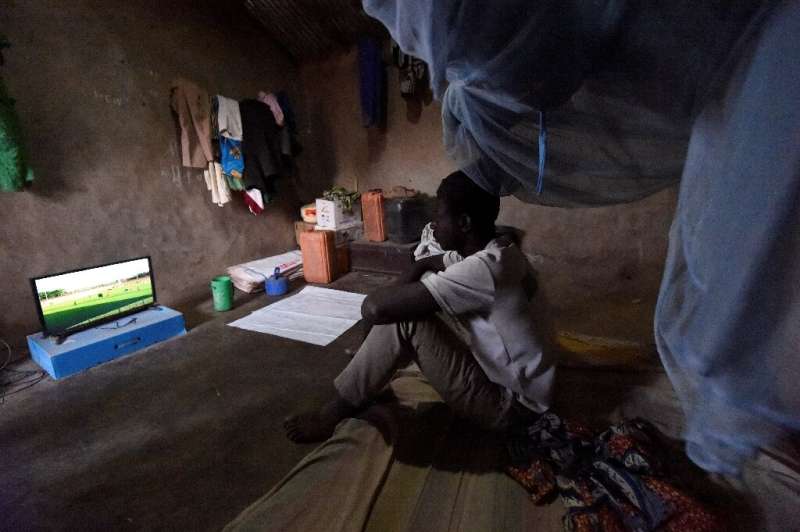
Not so long ago, whenever he wanted to watch a football match or recharge his phone, Ousmane Kantcho had to go "into town"—a 15-kilometre ride by bicycle on poor roads in the savannah.
His village, Tababou, lies more than 600 kilometres (375 miles) from the Togolese capital Lome.
Here, in one of Africa's most energy-starved places, homes would plunge into darkness at nightfall, for the village was not hooked up to the national electricity grid. Torches provided the only light.
"After 6 pm prayers, everyone stayed at home—there was nothing to do," said Kantcho, a 35-year-old farmer.
"Everything's different now," he said, turning on his television set.
Tababou has gone solar.
"Everyone gets together to watch the match at home, and the children can do their homework late in the evening," Kantcho enthused.
The creature comforts that are standard around the world—lights, TV and electrical sockets—have become available thanks to a 50-watt solar panel, installed on the roof of Kantcho's mud-walled hut.
Kantcho and thousands of others are the beneficiaries of a public-private initiative launched in 2018 that aims to provide electricity across the West African country by 2030.
That objective, budgeted at 952 billion CFA francs ($1.57 billion, 1.4 billion euros), will be met in great part by bringing in clean, renewable energy in rural areas, where most of Togo's eight million people live.
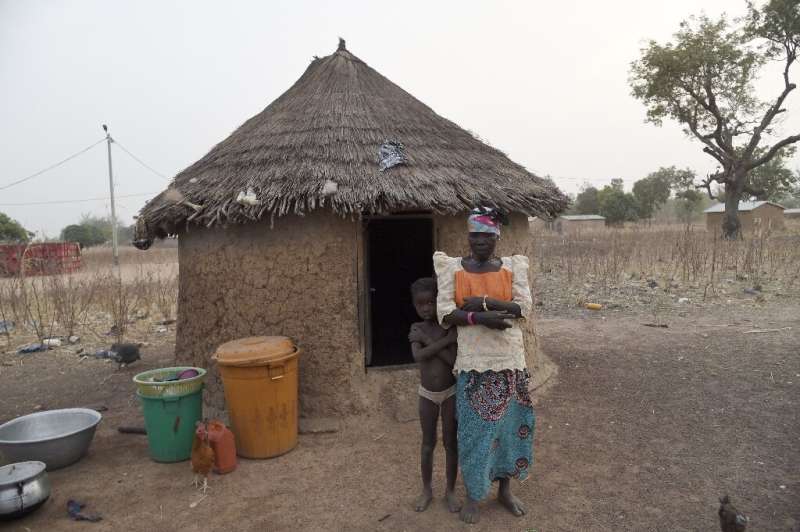
Taking the plunge
Locally generated power is far cheaper than connecting remote villages to a central grid—and helps to wean Togo off energy imported from Ghana and Nigeria, which today provide half of its electricity needs.
"Not so long ago, we were really far behind other countries in the region, but we've gone full-bore over the last two years," Abbas Abdoulaye, head of Togo's agency for rural electrification and renewable energy, AT2ER, told AFP.
Only 30 percent of all Togolese had access to electricity in 2016-17, a figure that has risen to nearly 50 percent today, he said.
Half of Togo's population lives on less than $1.90 per day, the threshold of extreme poverty, the World Bank says.
People in more than 2,200 villages so far have taken the plunge by buying a solar home system, a kit comprising a solar panel, a charge controller to regulate power and a battery to store the energy for when the sun is not shining.
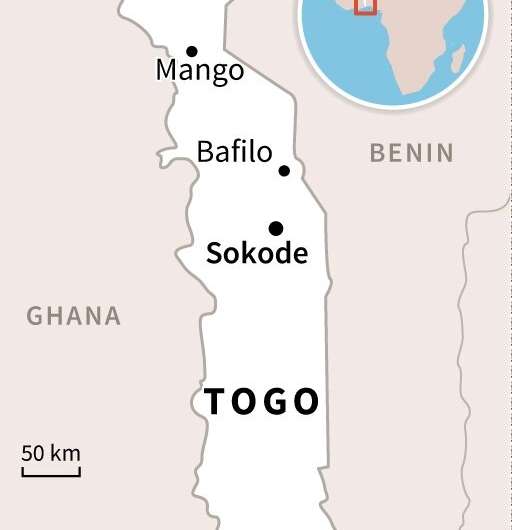
The kit is enough to power lights, a radio and a small television for several hours a day.
The systems are being sold and installed by private companies, such as Britain's Bboxx, which says it has sold more than 150,000 systems in more than 35 countries.
Solar mini-grids
Customers pay an installation charge of around 10,000 francs and then pay off the cost of the gadget in monthly instalments of 4,800 francs over the next three years. Half of the cost is subsidised by the state.
"It operates a bit like microcredit," said the Bboxx marketing director for Togo, Alexandre Kouigan.
More than half a million households should get individual kits over the next decade, the government hopes.
According to a report the UN Environment Programme (UNEP) and the Frankfurt School of Finance and Management, Africa offers one of the world's most promising markets for solar—investment rose 19 percent in 2018 over 2017, to $10.1 billion.
-
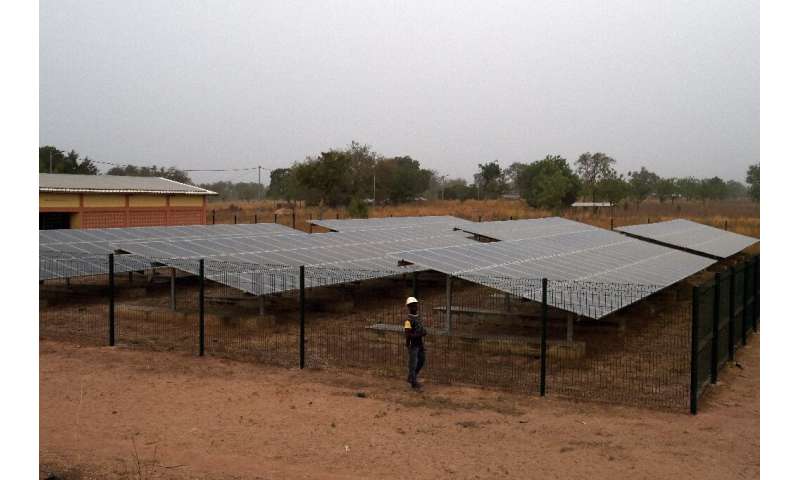
A mini-grid—a small solar farm—has been installed in Takpapieni, in Togo's northern province of Oti -
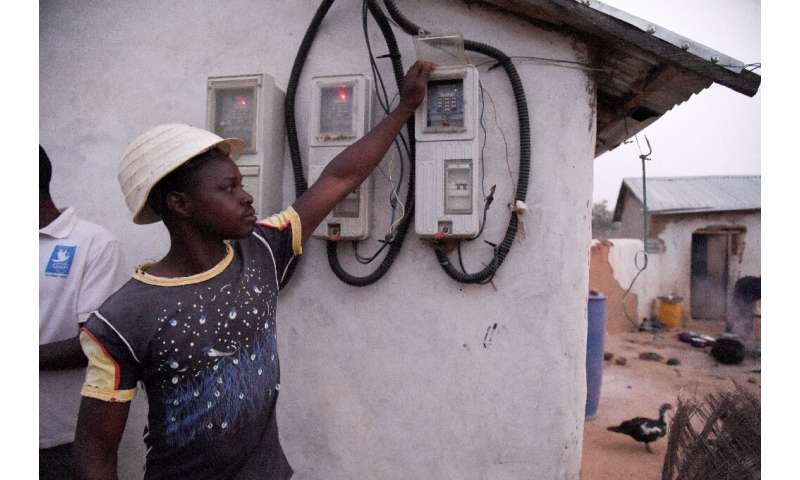
Pre-paid meters are installed on homes in Takpapieni—householders buy credit to access electricity from the mini-grid
Some villages in Togo are opting for a more sophisticated system—so-called solar mini-grids, comprising a centralised group of panels to harvest the sunlight, and whose power is shared among households and shops and nearby mobile phone towers.
The village of Takpapieni, in the far northern region of Savanes, gained one of Togo's first mini-grids in May 2018.
Two of the participants in the scheme are Daniele Daoula and her husband. She grows crops to pay for the power credits.
"We like it, but it gobbles up money," she exclaimed.
"When you buy 2,500 CFA francs of credits, that's not enough for even a month," she said, laughing.
"When the credit runs out, we just sit in the dark!"
© 2020 AFP















